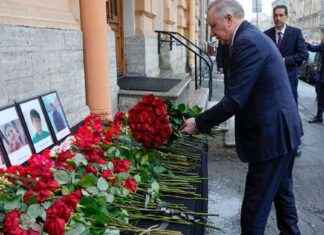The Patronal CEOE moved on Wednesday night closed to the head of the European Commission of the new funds, Céline Gauer, who will not accept the labor reform as is raising the second vice president, Yolanda Díaz.
This direct message of entrepreneurs to Brussels envas is a setback for the Government, since the European Commission considers it key that this reform in Spain is subject to all social agents.
The President of CEOE, Antonio Garamendi, confirms this newspaper that that is the position transferred to the representative of the Commission.
“With the labor reform of Yolanda Díaz, as he is considering it, an agreement is impossible.
She is in the antipodes of what is needed for companies to believe employment, “says the business leader.
The President of CEOE points out that the known one is “a political operation, is not a technical labor reform approach” and emphasizes that Diaz claimed his purpose of “repealing labor reform” at the parties of the Communist Party of Spain last 26
of September.
“We are not going to admit a political use of labor reform,” he says.
Garamendi declines commenting on the position that Gauer moved, but repeats that “what we hear from the European Commission on labor regulations is not what the government says.”
Only the fact that this General Director of the European Commission responsible for funds includes visits to social agents at his agenda in Madrid shows his interest in knowing the degree of support for a reform that he considers crucial for the so-called recovery plan, transformation
and resilience of Spain, financed with up to 140,000 million European money.
Gauguer and a broad team of the European Commission maintained a two-hour encounter with the CEOE Labor Relations Director, Rosa Santos.
The French Eurofuncionaria and its surroundings showed extensive knowledge of labor legislation in Spain and asked technical questions of great detail without political bias, which confirmed the representatives of CEOE and CEPYME that Gueguers approaches with professionalism and without ideology the regulatory change.
GARAMENDI frames these meetings in CEOE’s desire to “collaborate with the European Commission so that reforms in Spain are really transformative from an always constructive and independent position”.
“We do not oppose introducing improvements in the 2012 labor reform but to take steps back.”
In the employer, they are waiting for new documents from the Ministry of Labor that is committed to Brussels to carry out a labor reform before the end of the year within the EU promised to receive 10,000 million funds corresponding to 2021.
The only thing known until now was referred last June by the ministry and the answer of CEOE and Cepyme was categorical.
In the document Considerations of business organizations to the proposed document for the modernization of labor relations, both employers were resounding: “In a global and digitized environment, subjected to vertiginous and constant changes, the ability to adapt companies and working people is essential to guarantee
The productivity of our economy.
Far from this goal, the reforms proposed by the Government introduce rigidity in our labor market, ignoring the recommendations of the European Union and international organizations and, also, the specific needs of the Spanish economy and the qualitative and quantitative challenges of our market
of work”.
One of the tasks of GEUER is precisely to determine whether the Government’s labor reform complies with the EU’s recommendations to Spain and these include “a flexibility of working conditions”.
It also notifies the Government that “the success of the measures that can be adopted to achieve these objectives will depend to a large extent on the investment of the necessary time in the construction of a broad and durable political and social consensus around the reforms”, what
That gives weight to the CEOE position if Diaz is excessively aligned with the unions.
In the plan sent to Brussels, the wording does not include the repeal of labor reform, but in the preparatory document of the Ministry of Labor, the employers can see a step back.
“He does not have just understood whether the scope of the proposal pursues employment growth, from a Marxist approach to the labor market,” he came to say in the aforementioned report.
Gauer has also scheduled meetings with unions and on Wednesday he also maintained a meeting with deputies and senators of the Mixed Commission for the EU.
As the world informed, at that meeting he also pointed out labor reform as one of which he considers most relevant to assess the fulfillment of Spain of his commitments.
The President of the European Commission, Ursula von der Líen, mentioned last day 15 in the debate on the EU State that one the milestones of the new funds is “labor reform in Spain”.






